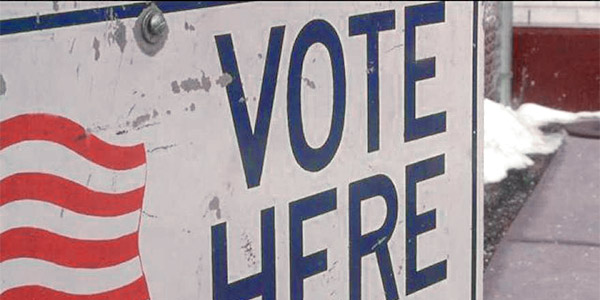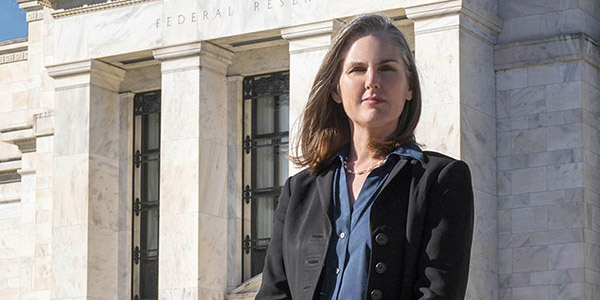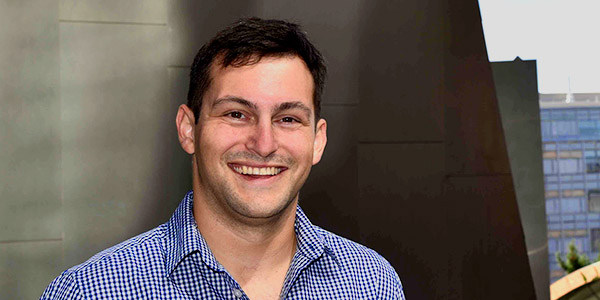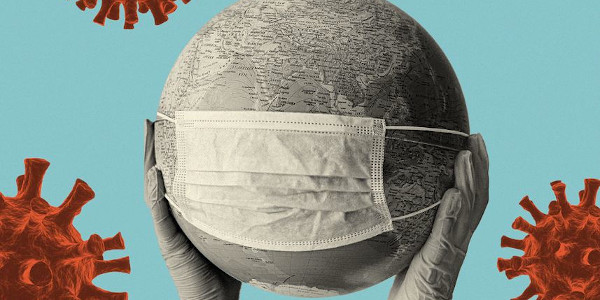MIT SCHOOL OF HUMANITIES, ARTS, AND SOCIAL SCIENCES
Media Digest | March 2021

The Media Digest is a section of the Said and Done newsletter. Subscribe
Office of the Dean | 17 March 2021
Dear Friends,
This Spring, words such as renewal, revival, and rejuvenation feel especially apt. As of this writing, just under ten million vaccine doses are being given each day worldwide — a global public health endeavor by which countless lives will be saved. The improving public health conditions are the necessary foundation for economic recoveries, and will gradually enable the resumption of social activities, with precautions as needed. (Follow MIT Now for updates on our community's path back to campus.)
Much work remains, however, including on pre-existing issues of limitations and inequities in the de-centralized U.S. healthcare system which have been amplified by the pandemic. This month’s Media Digest features highlights from our faculty’s ongoing contributions to public discourse on these and other issues.
Economic news abounds as experts weigh recent actions of the Biden Administration. In a CNBC article, Institute Professor Daron Acemoglu warns of divided support for universal basic income. Professor Jonathan Gruber’s proposals for the Affordable Care Act are shared in a Boston Globe editorial, and findings of the MIT Task Force on the Work of the Future continue to be reported, with contributions by Professor David Autor and Executive Director Elisabeth Reynolds.
Economist and practicing physician Dr. Jeffrey Harris writes in Life Under Quarantine about inequities that are “baked in” to the U.S. healthcare system, exacerbating the pandemic and putting some Americans at far higher risk than others.
Professor of history Craig Steven Wilder provides insight in a New York Times article discussing plans by the Jesuit order to raise $100 million to benefit the descendants of enslaved people and to promote racial reconciliation initiatives. The money raised by the Jesuits will flow into a new foundation established in partnership with a group of descendants.
Electoral administration and voting rights remain top-of-mind for Professor Charles Stewart, who commented in Vox on revising election laws, and co-authored an op-ed in The Hill on the need for the nation to begin planning now "for late-emerging problems and voting contingencies well before the next presidential election." In The Washington Post, Professor M. Taylor Fravel writes about the welcome disengagement of Indian and Chinese forces along their disputed border.
Finally, STS Professor Sherry Turkle appears on NPR’s "On Point" and "Fresh Air" to discuss her most recent book. Meeting wide acclaim, The Empathy Diaries has been cited by the New York Times as “an instant classic of the genre,” a work “with gravity and grace” that “drills down into the things that make a life.”
I hope you enjoy this edition of the Media Digest, which comes with my ongoing thanks to our faculty for their generous contributions to civic discourse,
and best wishes to all for sunny Spring days!
Melissa
Melissa Nobles
Kenan Sahin Dean
Professor of Political Science
MIT School of Humanities, Arts, and Social Sciences
MEDIA DIGEST
STRENGTHENING DEMOCRACY

Sign via CBS 58, WDJT, Milwaukee
THE HILL
Now is the time to prepare for the next election emergency | Charles Stewart III
"Election officials face challenges every year: bomb scares, no-show poll workers, blizzards, power outages, hurricanes and more, usually regional in scope. In 2020, they faced and met a true national threat to a presidential election. Now is the time to focus on what they learned — and to prepare for the next crisis before it arrives."
Story at The Hill
VOX
The new Republican war on voting rights | Charles Stewart III
Though states may try to change the rules to discourage methods of voting that members of one party favored in the past, Stewart argues that “the most important factor influencing turnout, both its level and composition, are the efforts by the campaigns to turn out voters.”
Story at Vox
ECONOMICS

Stacey Tevlin PhD '65, Economics
BLOOMBERG
Meet Stacey Tevlin PhD '95 who leads the Fed’s economic forecasting team
Tevlin PhD'95 (Economics) leads a team of 357 people in the Federal Reserve’s Research and Statistics division, which is entrusted with the forecasts for policy makers as they weigh interest rates every six weeks. Here's what she's thinking.
Profile at Bloomberg
THE NEW YORK TIMES
The robots are coming for Phil in Accounting | Daron Acemoglu
For most of the 20th century, the optimistic take on automation prevailed — on average, in industries that implemented automation, new tasks were created faster than old ones were destroyed.
Full story at The New York Times
CNBC
New stimulus proposals look like a guaranteed income experiment | Daron Acemoglu
Some want substantial universal basic income on top of the government aid programs that already exist. Meanwhile, others want to eliminate those benefits in favor of flat payments to everyone. “That inconsistency, I think, is dangerous,” Acemoglu said.
Commentary at CNBC
THE BOSTON GLOBE
It's time to fix the Affordable Care Act | Jonathan Gruber
Biden's plan helps, but because it is focused mostly on premium costs and not out-of-pocket expenses, it doesn't reduce total health care costs for individuals and families as much as necessary, Gruber says.
Story at The Boston Globe
CNN
Welcome to McDonald's. A machine will take your order now | Daron Acemoglu
Acemoglu pointed out that as automation proceeds over time it reduces the need for low-skilled and moderately-skilled workers, who typically do not have college degrees. Ideally, he said, companies will use these workers for other tasks.
Story at CNN
CRITICAL RESPONSE
Pulse oximeter
CNN
This crutial device may not work on dark skin | Amy Moran-Thomas
Moran-Thomas, who started researching pulse oximeters last year, uncovered studies going back to the 1990s that suggested there was a problem with pulse oximeters in darker-skinned patients.
Story at CNN
STAT NEWS
Doctors & lawmakers address disparities in pulse oximeters | Amy Moran-Thomas
As the Covid-19 pandemic continues, new MIT research has lead to calls on the FDA to address racial disparities in pulse oximeter effectiveness.
Story at STAT News
THE WALL STREET JOURNAL
First Light is a stellar start | review by Marcia Bartusiak
Acclaimed science writer and MIT professor emeritus Bartusiak writes, First Light, a thoroughly engaging tale that allows us to see science in the making, chronicles current attempts to reveal this hidden era—what we know and what we don't know. Ms. Chapman herself is in the thick of this endeavor and serves as a wonderful guide, whose voice is reminiscent of Carl Sagan's, although with an extra and very welcome dollop of impish humor."
Full review at The Wall Street Journal
FORBES
Solving tech problems requires more than just tech advancements | Neera Jain
"My first semester as an MIT undergraduate nearly 15 years ago, I enrolled in a course in its Program in Science, Technology, and Society. The course dealt with the ethics and political controversy surrounding major scientific advancements, such as the invention and ultimate use of the first atomic bomb...As the pace of technological development has accelerated, so too has the need for proper engagement with policymakers."
Commentary at Forbes
THE NEW YORK REVIEW OF BOOKS
Honing my knife skills | Sharon Lin
Lin reflects at her time at MIT and how mother and daughter reconciled different ways of being Chinese-American—in the kitchen.
Essay at The New York Review of Books
MAKING A JUST SOCIETY

Mark Aidinoff, PhD candidate, MIT-SHASS HASTS program; photo by Maria Iacobo
THE WASHINGTON POST
The history of using computers to distribute relief checks | Marc Aidinoff
Aidinoff writes, "Since the New Deal, policymakers have maintained faith in the federal government’s technical ability to sort out who is and is not deserving of public support."
Commentary at The Washington Post
THE NEW YORK TIMES
Catholic order pledges $100 million to atone for slave labor and sales | Craig Wilder
Wilder, a historian at MIT who has written about universities, the Catholic Church and slaveholding, described the move as an important initial step. “It will put tremendous pressure on other institutions in the United States — universities and churches — that share this history,” Dr. Wilder said.
Story at The New York Times
KSU
Women gaining space while preaching Islam on the Internet | Richard Nielsen
“When I found women preaching with authority on these sites, I was very surprised and wanted to know more,” explains Nielsen. He recently published a study on this topic, as part of his larger project to understand the impact of the Internet on religious authority.
Story at KSU
THE EMPATHY DIARIES, A MEMOIR BY SHERRY TURKLE

Professor Sherry Turkle; photo by Justin Kaneps for The New York Times
WIRED
Going remote, loneliness, and a new book
The book begins in Rockaway Beach, New York, where Turkle shares a one-bedroom apartment with her mother, aunt Mildred, and grandparents, and where Turkle learns to bear a strange secret about herself and her family history. It ends shortly after Turkle is awarded tenure at MIT in 1983, when computers are still clunky, cubical, and far from mainstream.
Story at Wired
THE NEW YORK TIMES
A beautiful memoir about the life of the mind and the life of the senses
Turkle is a clinical psychologist and a thinker about the ethics of technology and online life. She has taught for decades at MIT, and her books include Alone Together (2011) and Reclaiming Conversation (2015).
Review at The New York Times
WBUR
In her new memoir, Turkle examines how technology influences identity
A clinical psychologist and founder of the MIT Initiative on Technology and Self, Turkle has long been known for her incisive critiques of how we have appropriated the language of computing to describe our own processing of the world around us. We've become the human subjects of the technology we have created, she cautions, sacrificing our capacity for empathy along the way.
Story at WBUR
THE NEW YORK TIMES
A critic of technology turns her gaze inward
Sherry Turkle is best known for exploring the dysfunctional relationships between humans and their screens. She takes on a new focus — herself — in her memoir, The Empathy Diaries.
Story at The New York Times
SECURITY STUDIES

Borders and territories disputed by China and India today; map via Graphic News
THE WASHINGTON POST
China and India are pulling back from the brink. | M. Taylor Fravel
Fravel writes, "The separation of the two military forces reduces the odds of significant military escalation. India's move onto the high ground in August prompted Chinese countermoves and new tensions as each side sought to consolidate its positions."
Full analysis at The Washington Post
WBUR
U.S. launches airstrikes against Iranian-backed militias in Syria | Jim Walsh
The Pentagon says the strikes in Syria targeted Iranian-backed militia groups in response to a rocket attack at a U.S. base in Iraq last week. A civilian contractor was killed in that attack, and several U.S. troops were injured.
Commentary at WBUR
WBUR
Biden moves to restart Iran nuclear talks | Jim Walsh
The Biden administration says the U.S. would be willing to attend a meeting with European partners and Iran to "discuss a diplomatic way forward on Iran's nuclear program."
Commentary at WBUR
CNN
North Korea breaks silence to warn US against 'causing a stink' | Vipin Narang
"Denuclearization is a non-starter," said Narang, who added that "every time we use that phrase it's a five-yard penalty, because the North Koreans never agreed to it."
Story at CNN
PANDEMIC-RELATED MEDIA

Unsplash by Anna Shvets; graphic via NBC
At-A-Glance List of Pandemic-related Media Publications from MIT SHASS
An ongoing list of commentaries from our School community to inform policy and to increase public understanding of the pandemic.
LIFE UNDER QUARANTINE
A deeper look at vaccination inequity in Los Angeles County | Jeffrey Harris
There’s more to the story than a simple comparison of two maps. The sources of inequity are systemic.
Story at Life Under Quarantine
WFXT
Pandemic push toward automation means 'too few low-wage jobs' | David Autor
COVID-19 has drastically accelerated the shift to automation. “The crisis has simply brought the possibility of an increasingly automation-intensive future closer to the present,” wrote David Autor and Elisabeth Reynolds, members of the MIT Task Force on the Work of the Future.
Story at WFXT
THE WASHINGTON POST
While Americans faced uncertainty, Europe paid to keep workers employed | Autor
By early June, America's program was responsible for increasing the level of employment by 2.3 million workers, according to preliminary research led by Autor.
Story at The Washington Post
ALJAZEERA
Covid-19 vaccine roll outs around the world | Jonathan Gruber
Gruber discusses the unfolding distribution of vaccines on a global scale.
Conversation at Aljazeera
TECHNOLOGY REVIEW
The doctor will Zoom you now | Jon Gruber, Jeffrey Harris MD, and others
Patients now see that remote appointments can be effective and comfortable, and providers see that they can be compensated. “Telemedicine has been an enormous event,” Harris says. “I hope it is here to stay.”
Story at Technology Review
POPULAR SCIENCE
How long will we keep wearing masks? | Emma Teng
Face coverings have been a popular public health measure in East Asia for more than a century. According to MIT historian Emma J. Teng, “[masks seem] to have arisen with the 1918 influenza pandemic, becoming commonplace first in Japan.”
Story at Popular Science
TIME
Why video calls leave us lonelier and more stressed | Sherry Turkle
No one is less surprised about all this than Sherry Turkle: She's been studying how technology affects our capacity for empathy and connection since the first Apple computer showed up with a smiley face, reporting her findings in two seminal books.
Story at Time
The Media + Awards Digest is a section
of Said and Done, the School's online digest.
EXPLORE
Follow us
Follow MIT Now
for updates on our community's path back to campus
Subscribe to Said and Done
10 issues a year
Making a Better World | Impact
Browse
Making a Just Society
Explore the Resources
Solving Climate
Browse the Commentaries | MIT Climate Portal
Ethics, Computing, and AI
Full Series
Computing and AI | Humanistic Perspectives
Full Series
Perspectives for the Pandemic
Explore the Series
SHASS on MIT News
Research and Features
MIT Campaign for a Better World
Story | Join Us
Published by SHASS Communications
Office of the Dean, MIT School of Humanities, Arts, and Social Sciences
Editor and Designer: Emily Hiestand
Publication Associate: Alison Lanier
Media Relations Manager: Stephen Oakes
Published 17 March 2021




